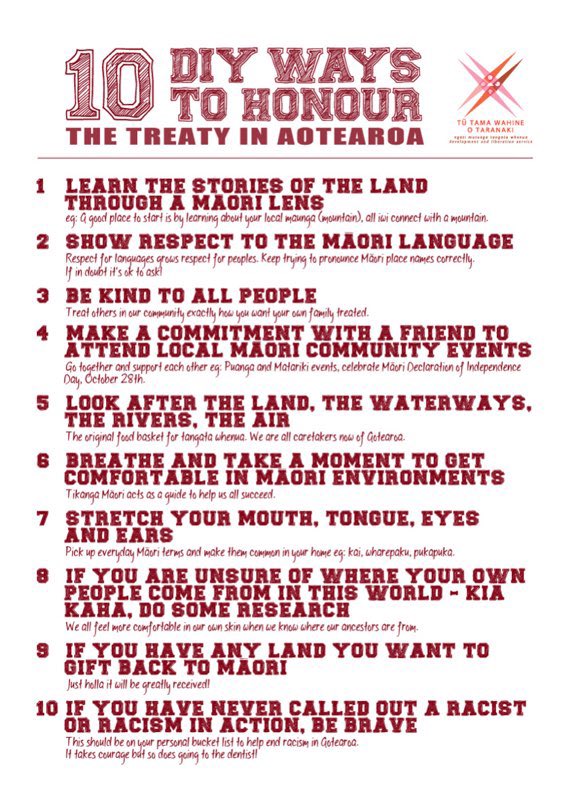One tangible thing that Pākehā who own land and houses can do to redistribute wealth / return what was stolen from Māori to Māori is enter into agreements with local hapū and iwi for that land to be returned.
Land back, a sort of long thread.
Land back, a sort of long thread.
I just finished being a part of a panel at the Social Movements, Resistance and Change conference in Pōneke titled ‘Pākehā reflections on Settler Responsibilities’. The main reflection was that there is clearly much more work to be done.
One reminder from @mahdismaki is that different types of contractual agreements are possible. And this is the concrete conversation that needs to be had between Pākehā.
One reality of our lives as Pākehā on stolen land is that we have benefited from the generational wealth accumulated from that stolen land, putting us (generally) in much more stable and secure positions in the society we created.
Working toward Tino Rangatiratanga requires a destabilising of what has been our norm, a dominant Pākehā society resting on the laurels, and continued benefits, of inherited colonialism. In order to destabilise then, or disrupt, one must work to deconstruct the power we maintain.
We must work ten times harder than anyone else to achieve this. In fact, it is of the utmost importance that we do this work, and we do it quickly. We need to be brave. Generations of Māori resistance has kept the all consuming tide of white supremacy at bay, to an extent.
And they have continued to demand better from us, to demand what is rightfully theirs. Pākehā have every responsibility and more to contribute, to be accomplices, in fact to be leaders in the destruction of our own power and privilege.
And we must go beyond the realms of what might be deemed ‘possible’. Yet, we may not have to look so far. Many early settlers entered into relationships with local hapū. They were invited to reside alongside those hapū. They were granted land to live on.
That land though, could never be owned by the newcomer. No matter how long you have been here, you will not have a whakapapa claim to this whenua. And - plot twist - that is actually OK. You do not have to feel hard done-by by this fact.
So, when you no longer have need of that space, and you have built the relationships necessary with the local hapū to live alongside each other, find ways to ensure the land is returned. There are ways to do this where everyone can be looked after.
In fact, it is imperative we find new ways of relating to ‘ownership’ in this country, and sitting on, and gate keeping, inherited wealth. Let’s imagine new ways of cooperating so that all can access what they need.
If you have a desire to live on this land, a right only accessible through Te Tiriti, you have a unique and important role to play as manuhiri. A role which is to uphold the agreement you entered into by living in accordance with tikanga alongside tangata whenua.
And if you are to renege on your responsibilities, our right to be here will be challenged, as is the consequence of disrespecting our hosts. Something we have done for almost 200 years now. So - are we going to be ancestors our descendants will be proud of?
Lets get to stepping. Lets form relationships with the people whose land we reside on. Lets be accountable to those around us. Lets find ways within the current system for stolen land to be returned. And, lets do it together.

 Read on Twitter
Read on Twitter


